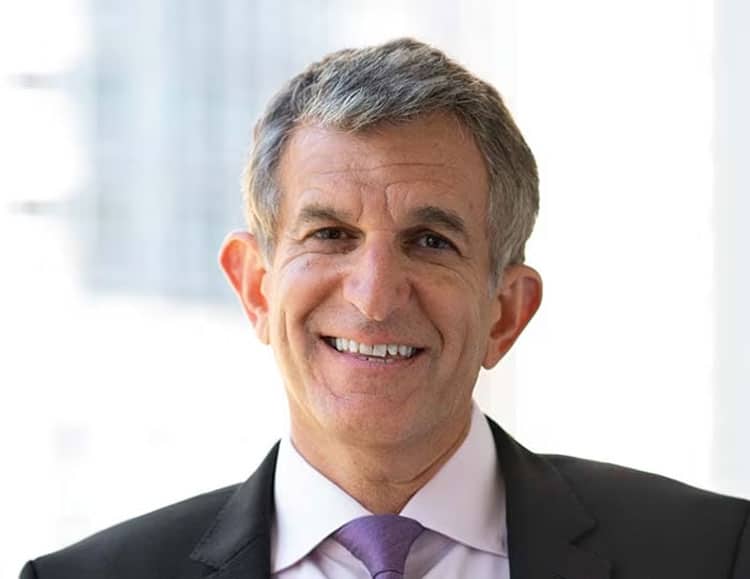My Misconceptions About Earning Career Success And How I Eventually Got it Right

Very few of us have a straight-line career trajectory. Even the most successful leaders experience setbacks, changes in interests, passions and opportunities, and a continual mix of good fortune and misfortune. All the while learning and evolving.
As our careers progress, one dynamic we seem to share is a desire to have known then what we know now.
A Personal Professional Journey
My own career path was anything but a straight line. In my early years, I struggled with misconceptions about how to attain success. I frequently felt as though I was banging my head against some invisible wall, due to my inability to attain leadership roles. As the years went by, I found the key to success was to take my focus off myself and shift it to my colleagues and my company. It required me to view my working world from a very different perspective.
I ultimately progressed to senior leadership roles in investment management firms, including Chief Investment Officer, Fixed Income and Tactical Solutions at
Charles Schwab. It was an honor to lead great teams! Yet the journey to leadership was not easy.
To help you learn from my misconceptions and the epiphany it took me decades to discover, here is a brief “walk” through my career journey. My goal is to help others learn more quickly than I did!
My Mid-20’s: Attempting to be the Smartest and Most Skilled Person in the Room
When I started my investment career in my mid 20’s, I was under the mistaken impression that if I could simply be the smartest person in the room, success would come my way. It didn’t. There were two huge problems with this approach. First, I wasn’t the smartest person in the room. Not even close. Second, I soon discovered that success doesn’t come simply because you’re smart. There are a lot of intelligent, highly capable people out there.
I spent a great deal of effort trying to develop my expertise in a variety of investment areas. While I enjoyed some success from a technical perspective, leadership skills and opportunities were certainly lacking. I came to appreciate that being super knowledgeable, even being the firm’s expert in a specific area, wasn’t enough to attain success. And it was certainly not sufficient to attain positions in leadership. There were benefits that came my way from honing my investment expertise – but those benefits had nothing to do with leadership.
My Late-20s: Working Harder Than Everyone Else
By the time I reached my late 20s, leadership roles were still not coming my way. Since being smart was not the ticket to leadership, I concluded that I needed to work harder than everyone else. If I could combine my investment expertise with hard work, then surely success would come my way and leadership opportunities would present themselves.
However, I was wrong again. Despite working late nights and weekends, leadership opportunities were not happening. Not that there’s anything wrong with being smart and working hard. Both are necessary ingredients for leadership. Looking back, I now clearly see that they were far from sufficient.
My 30’s: Playing the Corporate Game
As I moved into my 30’s, still not attaining success, I became more and more frustrated. Why wasn’t I able to attain significant leadership opportunities? At the same time, I became increasingly cognizant of corporate politics. At some companies, politics are for the most part, in the background. In others, it’s a matter of downright survival. Yet playing the corporate game can mean ignoring your authentic self and compromising on intellectual honesty. It’s a debilitating distraction from real work. Not to mention stressful.
To put it mildly, playing the corporate game just wasn’t in my nature – though admittedly, I did try. I came to appreciate that I’m most effective and content when I can be my authentic self, in both personal and professional relationships. Corporate politics can be the opposite of that.
The combination of smarts, working hard and playing the corporate game still didn’t allow me to attain the success I sought. Sadly, I didn’t feel I was any closer to significant leadership roles in my 30s than I had been in my 20s.
My 40s: Focusing on Bringing out the Best in my Colleagues – Finally Success!
By the time I reached my 40’s, a change was starting to occur. I learned to appreciate the value of meaningful work relationships and the power of purposeful connections. It had always been in my nature to enjoy my relationships with colleagues, many of whom became good friends. However, in my earlier years, I didn’t fully appreciate that leadership means connecting with coworkers, seeing them through a human lens, and appreciating them both personally and professionally. In doing so, bringing out the best in them, the team and the organization.
I took great joy from helping colleagues reach their goals, connecting them to company objectives, and inspiring them to contribute more than they thought possible. I made it a personal mission to bring out the best in everyone I worked with as a coach, mentor and teacher. More than my investment expertise, or any other skills I’ve developed, my greatest contribution came through strong, trusting relationships and leadership.
By investing in others, success came my way and I attained the leadership positions I had been seeking. I’ve been privileged to see this work with other leaders as well. When they shift their focus to the wellbeing of their employees and peers, their teams deliver more than expected. This leads to even greater opportunities.
Translating My Experience to Your Career Success
We each have our own unique career paths with inevitable highs and lows, successes and setbacks, misconceptions and epiphanies. The mistakes that limited my career growth involved an overemphasis on the functional aspects of my work, and on concentrating on my own success. When I pivoted to focus on relationships, people and teams, leadership opportunities followed. And with them, shared success.
There are many very smart, hardworking, corporate gameplaying people out there. Instead of trying to compete in that way, I recommend you change the game. To optimize impact, and earn leadership opportunities, start focusing on people, relationships, and teamwork. The connections you create provide the foundation for leadership and success.
My greatest professional joy is helping colleagues apply these strategies.
Written by Brett Wander.
Have you read?
Navruz Avloni: How CEOs Can Cultivate Trust and Safety in the Workplace.
Best CEO Forum Companion Hack? Visibility.
Best Books for Examining Modern Motherhood.
Luxury Living for American Expats: Top Dubai Neighbourhoods and Lifestyle Amenities.
Accept Result and Strategize.
Bring the best of the CEOWORLD magazine's global journalism to audiences in the United States and around the world. - Add CEOWORLD magazine to your Google News feed.
Follow CEOWORLD magazine headlines on: Google News, LinkedIn, Twitter, and Facebook.
Copyright 2025 The CEOWORLD magazine. All rights reserved. This material (and any extract from it) must not be copied, redistributed or placed on any website, without CEOWORLD magazine' prior written consent. For media queries, please contact: info@ceoworld.biz









